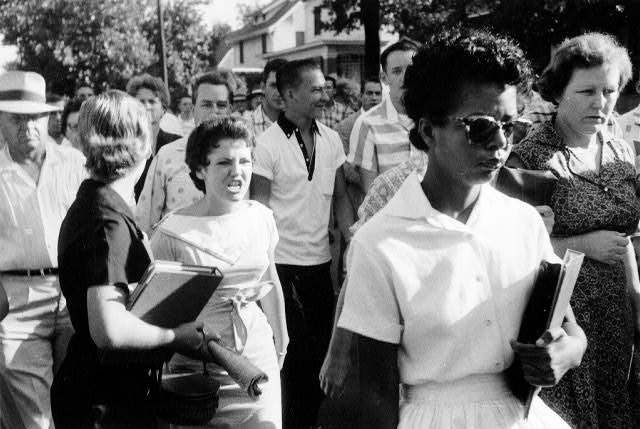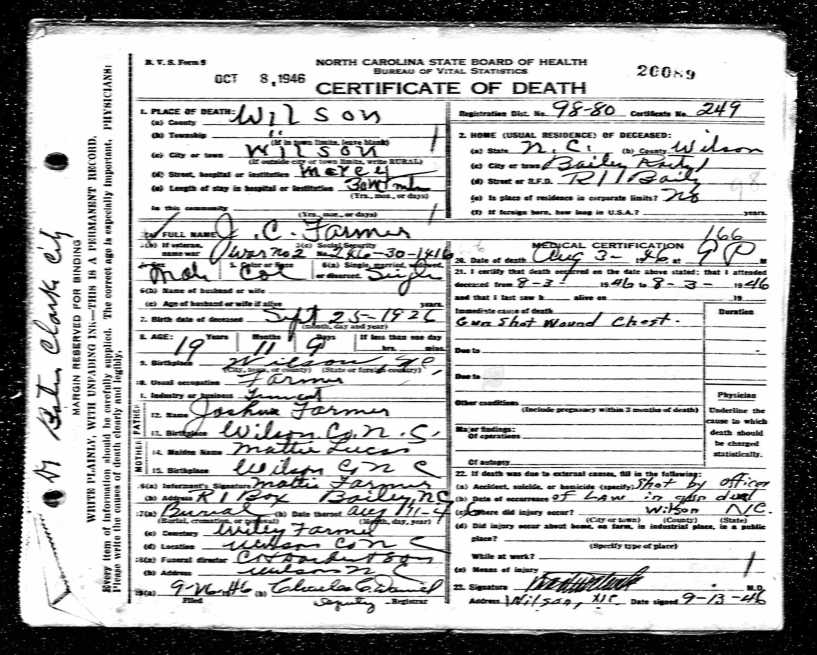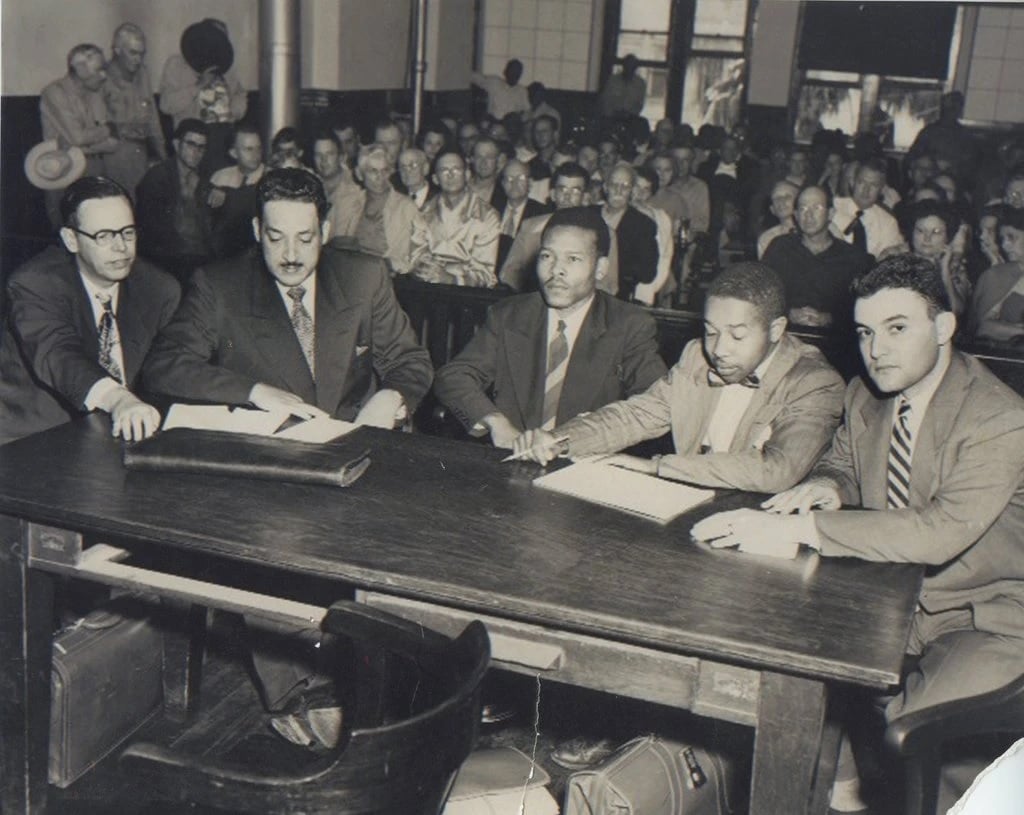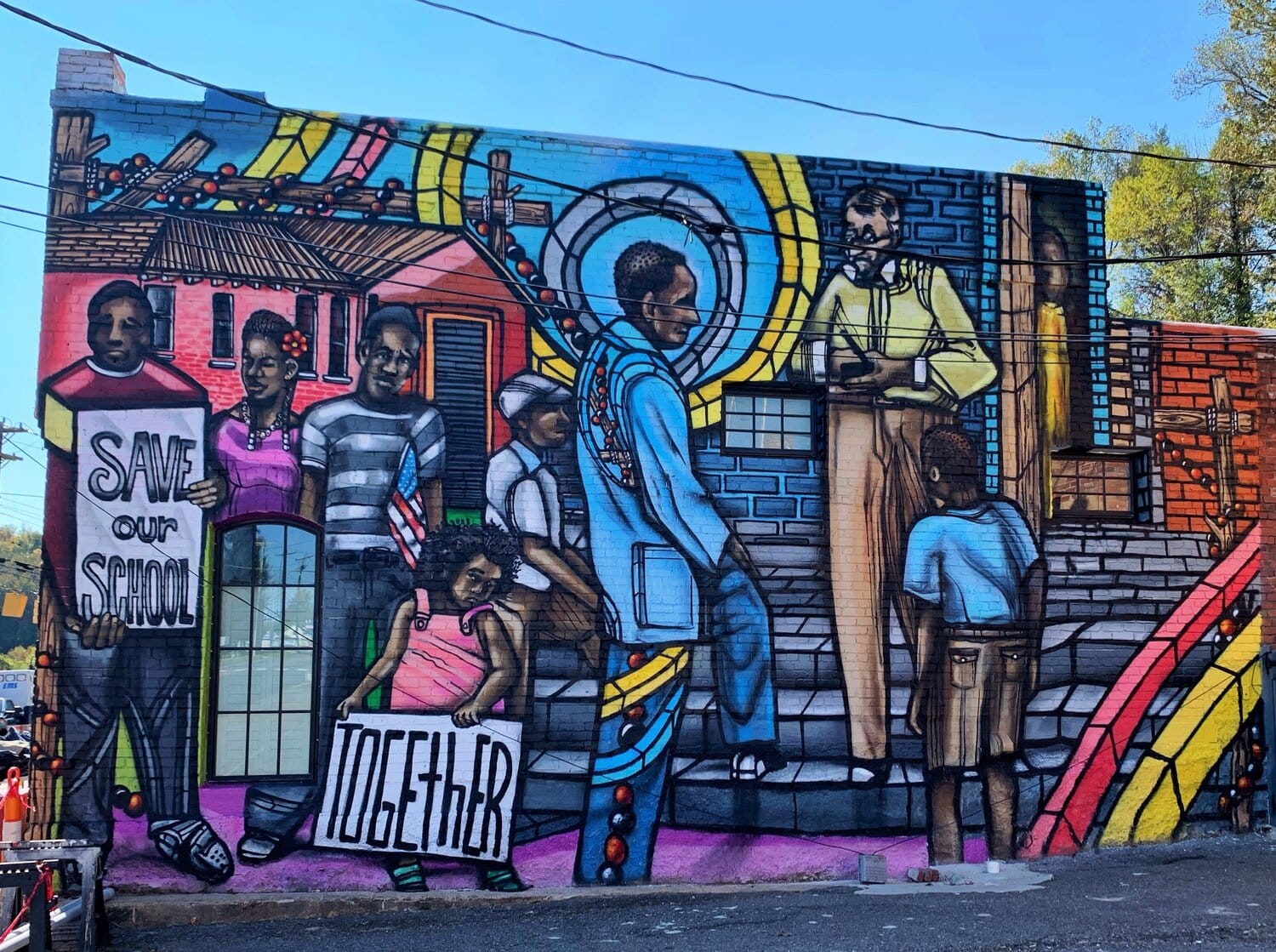By the Equal Justice Initiative’s Sara Rimer
A bright, warm afternoon in late October 1958, in rural Monroe, North Carolina: two Black children, 9-year-old James Hanover Thompson and his 8-year-old friend David “Fuzzy” Simpson, were playing with a group of white boys and girls. As afternoon gave way to evening, a kissing game began. One of the white girls, 7-year-old Sissy Sutton, kissed first David on the cheek, and then James, before heading home. Retrieving their wagons, the two friends walked toward the center of town. They had no way of knowing they’d done anything wrong, and that white Monroe was about to severely punish them, and their families — for a kiss.

Kelly Alexander, of the Wadesboro, North Carolina, NAACP, comforts James and David following an unsuccessful habeas corpus hearing. Photo from Jet Magazine. Source: EJI
Sissy Sutton mentioned the kiss to her parents when she got home. Reportedly in hysterics and threatening to kill James, Sissy’s mother notified police. James and David were pulling their wagons when police accosted them, with guns drawn. The lives of James Thompson and David Simpson and their families were shattered and the entire Black community was traumatized, but the kissing case all but disappeared from public view.
James and David were pulling their wagons when police accosted them, with guns drawn. Shouting racial epithets and calling them “little rapists,” police handcuffed the boys and shoved them into a patrol car. “When we got down to the police station, we understood that they said we had raped a little white girl,” James Thompson would recall more than half a century later. “They took us down in the bottom of the police station to a cell … They started beating us, they were beating us to our body, you know? They didn’t beat us to the face where nobody could see it. They just punched us all in the stomach and back and legs. We was hollering and screaming. We thought they were going to kill us.”

James Hanover Thompson (left) and his brother Dwight Thompson (right) in 2011. Source: StoryCorps
For the next six days they were kept locked up and barred from seeing their parents. Police entered their cell on Halloween, pretending to be Klansmen. “These men came with sheets over their heads,” Mr. Thompson would recall later. “They said they were going to hang us, lynch us. I was crying. I was scared to death.”
James and David were charged with assault and molestation, found guilty in a “separate but equal” hearing, and sentenced to spend the rest of their childhoods in a reformatory. Their family was threatened and attacked, the family dog killed, until, with the help of the NAACP, the family fled to Charlotte.
After tremendous public pressure, James and David were pardoned by the governor on February 13, 1959.
Continue reading the Equal Justice Initiative (EJI) article “The Kiss.” Watch the EJI video below, created to help raise awareness about this travesty.











Twitter
Google plus
LinkedIn